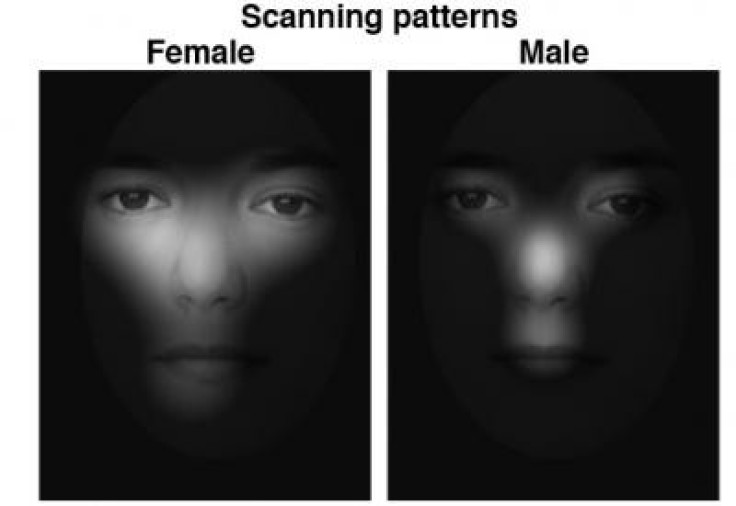Women Better at Remembering Faces Than Men Finds Study

Women are better at remembering faces than men because they spend more time looking at another person's features subconsciously, a study has found.
Researchers at the McMaster University in Ontario found that women fixate on features to a much greater extent than men do, making it easier for them to remember faces.
Jennifer Heisz, an assistant professor at the university who co-authored the paper, explained that the way humans move their eyes across a stranger's face affects the ability to recognise them at a later date.
The team believe their study may help to answer questions about why some people are better at remembering faces than others, and provide ways to improve people's memories.
Heisz said: "Our findings provide new insights into the potential mechanisms of episodic memory and the differences between the sexes. We discovered that women look more at new faces than men do, which allows them to create a richer and more superior memory."
The researchers used eye tracking technology to follow where participants looked when seeing a new face - from eyes, nose to mouth.

The participants were then shown a series of randomly selected faces and were asked to remember a name assigned to the face. One group was tested over four days and another over one day.
Findings showed that women were better at remembering faces than men: "We found that women fixated on the features far more than men, but this strategy operates completely outside of our awareness," Heisz said.
"Individuals don't usually notice where their eyes fixate, so it's all subconscious."
They believe that increased scanning when looking at a face would help people to remember better.
David Shore, co-author of the study, added: "The results open the possibility that changing our eye movement pattern may lead to better memory.
"Increased scanning may prove to be a simple strategy to improve face memory in the general population, especially for individuals with memory impairment like older adults."
© Copyright IBTimes 2024. All rights reserved.






